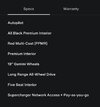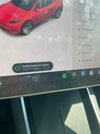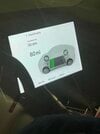henderrj
Active Member
From google, all rebuilt titles come from salvage titles (they are simply salvage vehicles that are repaired and then recertified by the state). That means they are banned by Tesla also. Tesla does not acknowledge any sort of fixes to salvage vehicles to requalify for supercharging (they do have an inspection process to allow Tesla to work on the HV parts of the car again, but that does not reactivate supercharging).
https://www.autosavvy.com/branded-title-information/what-is-a-rebuilt-title/
The point of my post was to say that the person who wanted to buy a car he knew was salvage and asked Tesla to give him supercharging was living a dream. I don't think it's going to happen. Not unless they lose some big law case.
In my case, this was 6 years ago, apparently there wasn't a nationwide database then. But maybe there was. In any event Tesla, myself, the insurance company, and the credit union all did not believe this was a salvage vehicle. Apparently no insurance company ever paid out on it. It was a self-insured vehicle, and the right-off to the business it was run through was worth more in tax dollars than the value of the vehicle. So even though the repairs were less than what normally cause a car to be salvaged, it technically was. Even if by a private party. Our case appears to be entirely unique in Tesla annals.





